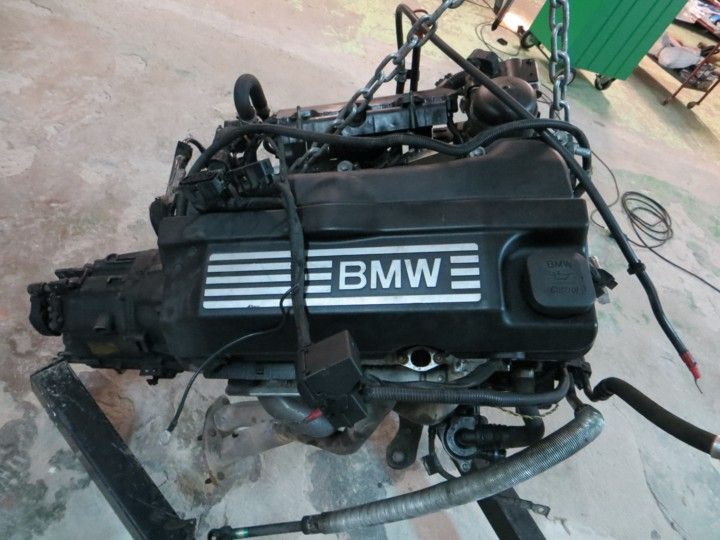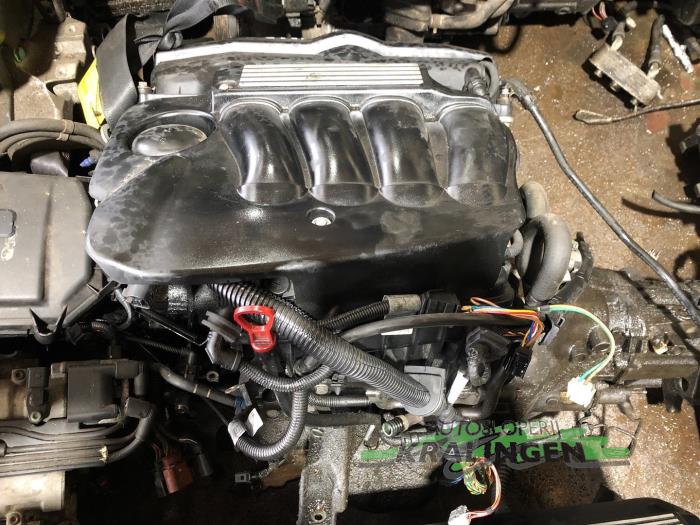Why the BMW 318ti Is a Top Option for Auto Enthusiasts
Key Features to Search For When Getting an Engine for Automotive Applications
When taking into consideration the acquisition of an engine for auto applications, numerous vital attributes warrant mindful analysis to make certain optimum efficiency and performance. From power and performance capabilities to sustain performance, durability, and adherence to emissions criteria, each facet plays a critical function in identifying the engine's viability for certain automobile demands. Cost-effectiveness stays a pivotal aspect in the decision-making procedure, balancing top quality with monetary considerations. These functions jointly contribute to the total effectiveness and integrity of the engine, influencing the driving experience and lasting contentment of the user.
Power and Efficiency
When selecting an automobile engine, purchasers prioritize power and performance to guarantee ideal driving experience and effectiveness. The power result of an engine, usually gauged in horse power (HP) or kilowatts (kW), determines the velocity, leading rate, and general abilities of an automobile. Greater power scores normally cause quicker velocity and much better performance, especially throughout surpassing or lugging hefty lots. Efficiency, on the other hand, encompasses a broader spectrum of characteristics, consisting of fuel efficiency, exhausts, integrity, and general driving dynamics. A well-performing engine not only delivers power successfully yet likewise operates efficiently throughout different speed varieties and driving conditions.
Furthermore, factors such as engine turbocharging, crossbreed, and displacement technologies play substantial duties in boosting both power and performance degrees. Ultimately, picking an engine that provides a powerful combination of power and efficiency makes certain a satisfying and effective driving experience.
Fuel Effectiveness
Optimizing gas effectiveness is a paramount factor to consider for consumers when evaluating automobile engine options. The performance of an engine straight influences operating expense and ecological footprint. One key factor influencing fuel efficiency is the engine's layout and modern technology. Modern engines with functions like straight gas shot, turbocharging, and variable shutoff timing can considerably enhance fuel efficiency by enhancing combustion processes and minimizing power loss. Furthermore, the general weight of the engine and lorry, in addition to the aerodynamics, play important roles in figuring out fuel consumption.

Resilience and Reliability
Attaining durable efficiency and reputable operation is important for consumers evaluating the sturdiness and reliability of auto engines. When taking into consideration an engine for vehicle applications, sturdiness describes the engine's capability to withstand wear, anxiety, and severe operating problems over an extensive duration. Reliability, on the other hand, indicates that the engine can consistently perform its desired feature without unforeseen breakdowns or failures.
Consumers should look for engines built with high-grade products and precise engineering to ensure durability. Parts such as bearings, pistons, and crankshafts need to be durable to take care of the engine's power outcome without early wear. Additionally, engines equipped with advanced cooling systems, reliable lubrication, and durable purification systems tend to show greater levels of reliability.
Routine upkeep and adherence to manufacturer referrals are likewise critical aspects in maintaining an engine's longevity and integrity. By adhering to upkeep timetables, utilizing recommended fluids, and dealing with any problems quickly, consumers can take full advantage of the life expectancy and efficiency of their automotive engines. Ultimately, prioritizing sturdiness and reliability in engine choice can result in a more rewarding possession experience with fewer unforeseen interruptions.
Exhausts Conformity
Making certain conformity with discharges guidelines is a vital element of examining auto engines for ecologically aware consumers. With boosting problems concerning air high quality and ecological influence, strict exhausts standards have actually been established globally to decrease damaging contaminants released into the environment. When acquiring an engine for automotive applications, it is necessary to consider its exhausts conformity to decrease the carbon impact and abide by lawful requirements.
Modern engines are equipped with innovative discharge control modern technologies such as catalytic converters, exhaust gas recirculation (EGR) systems, and selective catalytic reduction (SCR) to minimize hazardous exhaust gases like nitrogen oxides (NOx), carbon monoxide gas (CO), and hydrocarbons (HC) These systems play a critical duty in making certain that the engine meets the defined discharges criteria and runs within allowable limits.

Cost-effectiveness
When considering vehicle engine acquisitions, reviewing cost-effectiveness is paramount for consumers seeking both efficiency and worth. Cost-effectiveness in engine acquisition involves greater than just the initial purchase cost. It includes the general costs associated to upkeep, fuel consumption, and potential repair work over the engine's life expectancy. Choosing an engine that provides a balance between long-term financial savings and ahead of time prices can result in significant benefits for the customer.
One trick element browse this site of cost-effectiveness is fuel efficiency. Engines that are made to optimize fuel economy can cause considerable cost savings gradually, particularly for individuals that drive frequently or over cross countries. Additionally, taking into consideration the accessibility and affordability of extra components and maintenance can add to the total cost-effectiveness of an engine. Guaranteeing that repair and maintenance are sensible and obtainable can stop unexpected monetary burdens down the line.

Verdict
In conclusion, when purchasing an engine for vehicle applications, it is essential to think about vital attributes such as power and performance, fuel integrity, longevity and performance, exhausts conformity, and cost-effectiveness. These variables are crucial in making certain that the engine fulfills the needs of the lorry and runs successfully in different driving conditions - bmw 318ti. Making an informed choice based upon these standards will inevitably cause a efficient and effective auto engine acquisition
From power and performance capabilities to sustain effectiveness, adherence, and toughness to emissions criteria, each element plays an important role in establishing the engine's viability for particular automotive demands. Engines developed to run on alternative gas such as electric power, hybrid systems, or biofuels can supply enhanced gas economic climate and lower exhausts compared to standard gasoline or diesel engines. Consumers must thoroughly consider the gas effectiveness rankings and technologies included right into automotive news engines to make educated acquiring decisions that straighten with their priorities for price financial savings and sustainability.
When considering an engine for auto applications, toughness refers to the engine's capacity to stand up to wear, stress and anxiety, and severe operating problems over an extensive period.In final thought, when acquiring an engine for automotive applications, it is vital to consider essential functions such as power this content and efficiency, gas reliability, sturdiness and effectiveness, exhausts conformity, and cost-effectiveness.